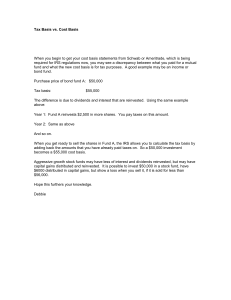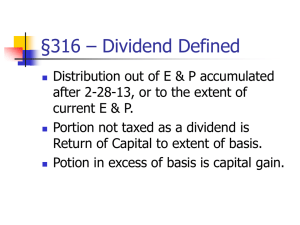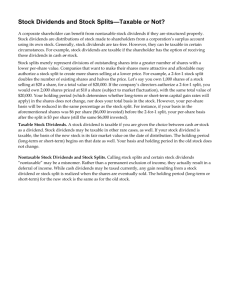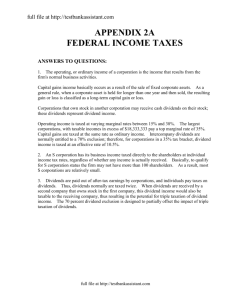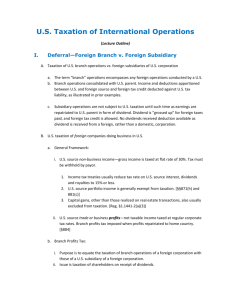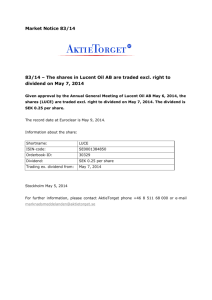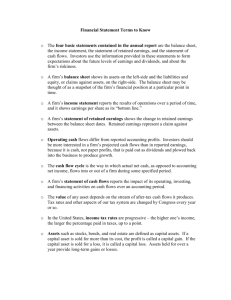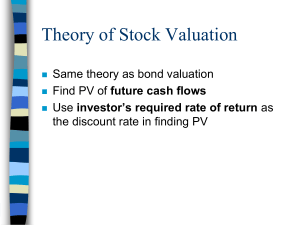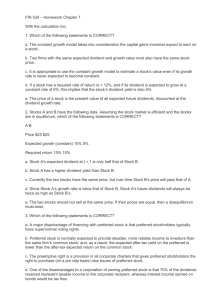Dealing With Dividends
advertisement
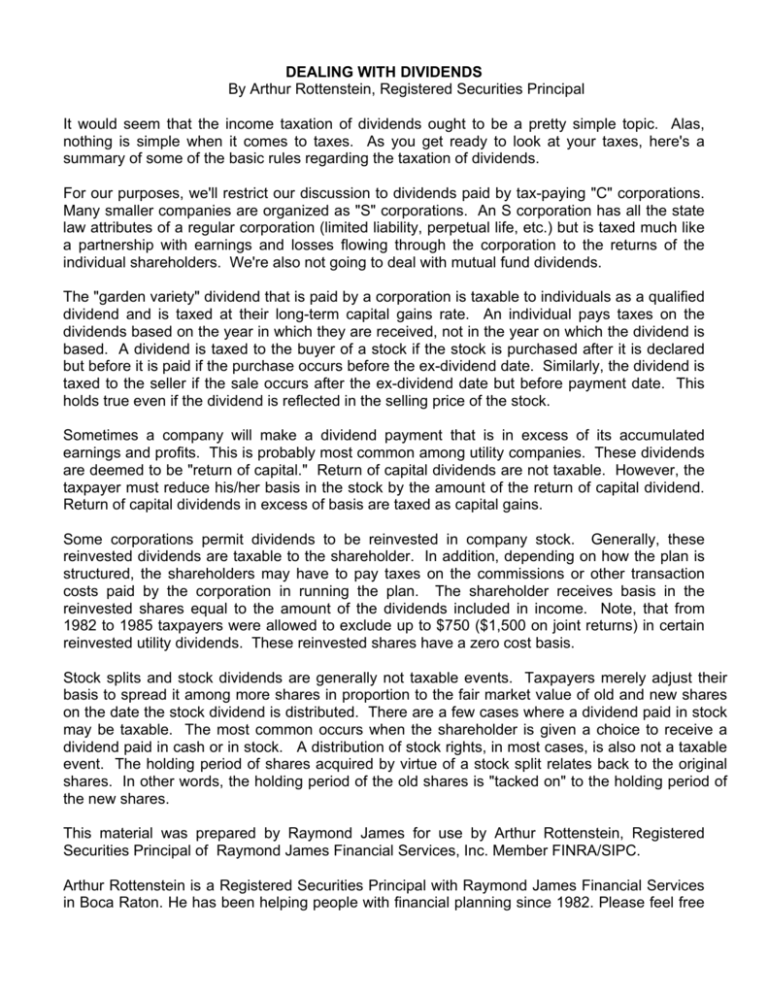
DEALING WITH DIVIDENDS By Arthur Rottenstein, Registered Securities Principal It would seem that the income taxation of dividends ought to be a pretty simple topic. Alas, nothing is simple when it comes to taxes. As you get ready to look at your taxes, here's a summary of some of the basic rules regarding the taxation of dividends. For our purposes, we'll restrict our discussion to dividends paid by tax-paying "C" corporations. Many smaller companies are organized as "S" corporations. An S corporation has all the state law attributes of a regular corporation (limited liability, perpetual life, etc.) but is taxed much like a partnership with earnings and losses flowing through the corporation to the returns of the individual shareholders. We're also not going to deal with mutual fund dividends. The "garden variety" dividend that is paid by a corporation is taxable to individuals as a qualified dividend and is taxed at their long-term capital gains rate. An individual pays taxes on the dividends based on the year in which they are received, not in the year on which the dividend is based. A dividend is taxed to the buyer of a stock if the stock is purchased after it is declared but before it is paid if the purchase occurs before the ex-dividend date. Similarly, the dividend is taxed to the seller if the sale occurs after the ex-dividend date but before payment date. This holds true even if the dividend is reflected in the selling price of the stock. Sometimes a company will make a dividend payment that is in excess of its accumulated earnings and profits. This is probably most common among utility companies. These dividends are deemed to be "return of capital." Return of capital dividends are not taxable. However, the taxpayer must reduce his/her basis in the stock by the amount of the return of capital dividend. Return of capital dividends in excess of basis are taxed as capital gains. Some corporations permit dividends to be reinvested in company stock. Generally, these reinvested dividends are taxable to the shareholder. In addition, depending on how the plan is structured, the shareholders may have to pay taxes on the commissions or other transaction costs paid by the corporation in running the plan. The shareholder receives basis in the reinvested shares equal to the amount of the dividends included in income. Note, that from 1982 to 1985 taxpayers were allowed to exclude up to $750 ($1,500 on joint returns) in certain reinvested utility dividends. These reinvested shares have a zero cost basis. Stock splits and stock dividends are generally not taxable events. Taxpayers merely adjust their basis to spread it among more shares in proportion to the fair market value of old and new shares on the date the stock dividend is distributed. There are a few cases where a dividend paid in stock may be taxable. The most common occurs when the shareholder is given a choice to receive a dividend paid in cash or in stock. A distribution of stock rights, in most cases, is also not a taxable event. The holding period of shares acquired by virtue of a stock split relates back to the original shares. In other words, the holding period of the old shares is "tacked on" to the holding period of the new shares. This material was prepared by Raymond James for use by Arthur Rottenstein, Registered Securities Principal of Raymond James Financial Services, Inc. Member FINRA/SIPC. Arthur Rottenstein is a Registered Securities Principal with Raymond James Financial Services in Boca Raton. He has been helping people with financial planning since 1982. Please feel free to call Arthur at 954.341.7209 or email arthur.rottenstein@raymondjames.com. Please also feel free to visit his website at coralspringsfinancialplanner.com.
